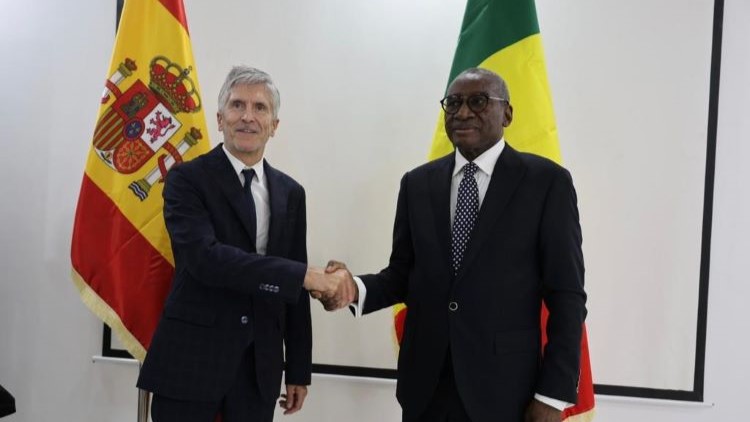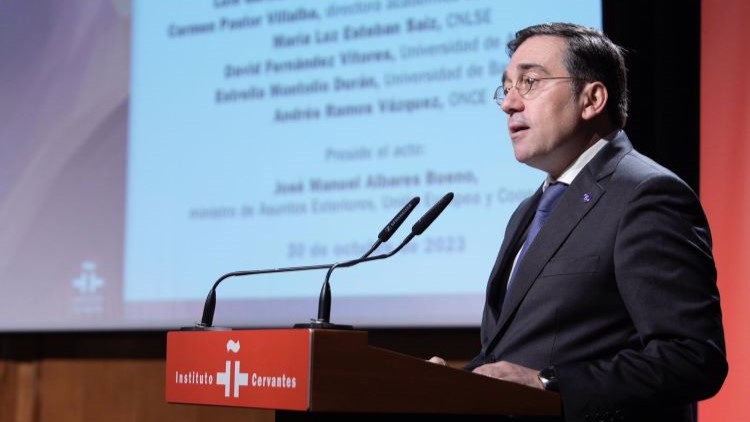Eduardo González
The acting Minister of the Interior, Fernando Grande-Marlaska, met yesterday in Dakar with his Senegalese counterpart, Sidiki Kaba, to analyze the situation of the migratory routes to the Canary Islands and to strengthen the already existing mechanisms to fight against human trafficking networks. So far this year, bilateral cooperation has prevented 49 percent of irregular arrivals to the archipelago from this country.
In his interview, as reported by the Ministry of Interior, Grande-Marlaska thanked his counterpart for the collaboration of Senegal during the last years, which constitutes “one of the best examples of bilateral operational cooperation of our environment”, and proposed him to strengthen the existing mechanisms to “act more quickly” and avoid “more innocent deaths at sea” on the route to the western islands of the Canary archipelago.
“We must stop their unscrupulous actions that put the lives of thousands of vulnerable people at risk,” stated the minister, who specified that this effort will also allow to improve the prosecution of other illicit trafficking and criminal activities in which the mafias are involved. “Our bilateral collaboration will benefit the stability, security and well-being of our citizens,” he stressed.
On the other hand, Grande-Marlaska also held a meeting in the Port of Dakar with a representation of the national police and civil guards who are deployed in Senegal in the interception of departures and the fight against trafficking networks. Likewise, and in this context of strengthening bilateral cooperation and capacities, the Department of Grande-Marlaska delivered to the Senegalese Police six new multicopter drones specially designed for the detection and interception of boat departures.
Spain maintains in Senegal a permanent contingent of the State Security Forces and Corps which works together with the local security forces in the prevention of irregular departures from its coasts, in the location and interception of cayucos, as well as in the investigation and dismantling of criminal trafficking networks.
Currently, this contingent is made up of a total of 38 troops (33 civil guards and five national police officers), equipped with four boats, a helicopter and 13 all-terrain vehicles, to carry out joint patrol missions (land, sea and air). In addition to this permanent arrangement, a Guardia Civil CN-235 aircraft has been deployed in Dakar since October 17 to patrol the coasts of Senegal and Mauritania.
The operational collaboration of the Spanish security forces and the actions of the local authorities, according to the Ministry, have made it possible to intercept during 2023, with data up to October 29, a total of 7,132 people making the Atlantic route towards the Canary Islands, which means that around 49 percent of irregular arrivals to the archipelago from the coasts of Senegal have been prevented at source. If we add the data of interceptions in Senegal to those carried out in Mauritania, Gambia and Morocco on the Atlantic route, the cooperation with the countries of origin and transit deployed by Spain has prevented at origin, so far in 2023, the arrival in the Canary Islands of a total of 17,426 additional people, added the Department of Interior.







